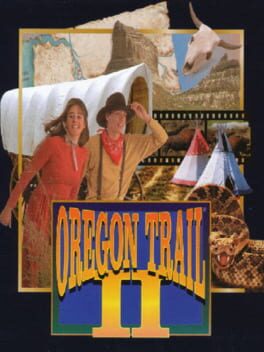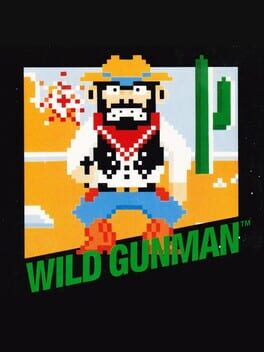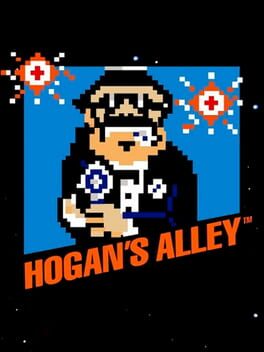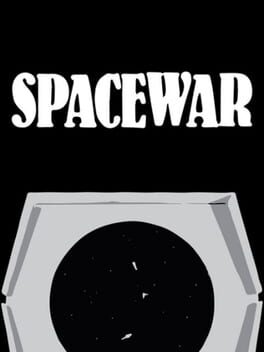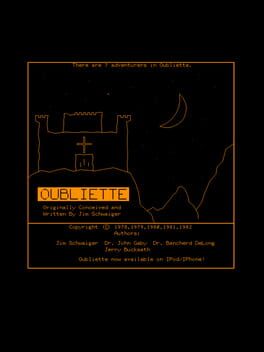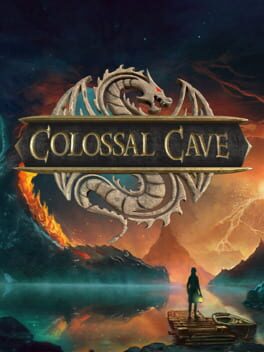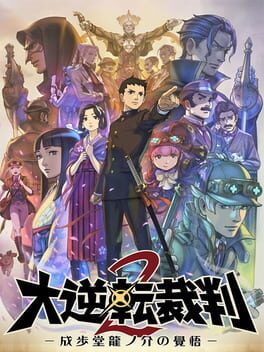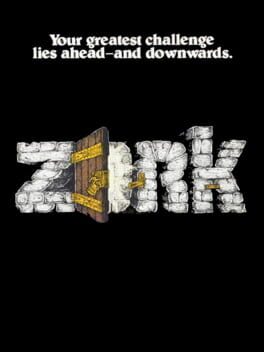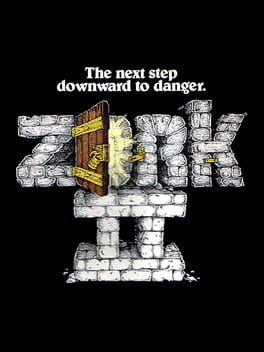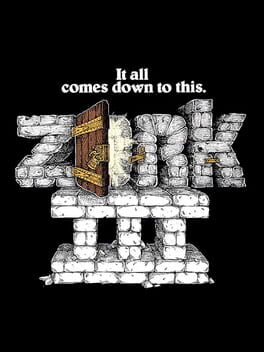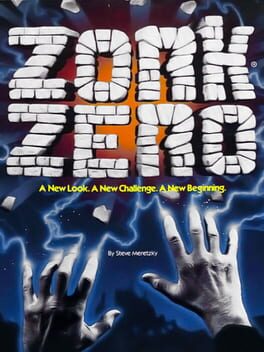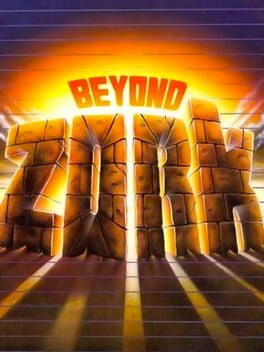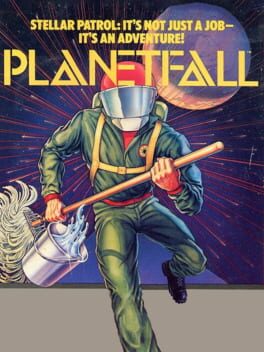DeviousJinjo
1995
I don't have any memory of playing Oregon Trail at school. I played it at home, through Oregon Trail 2, and I never made it out alive. Oregon Trail 2 is, in every way I can think of, an improvement on Oregon Trail 1, a game that had already been extremely solid since its earliest iteration.
It's a game with a learning curve, because very few players are going to intuit that they can get meat on the road but not fruit or veg, and that it matters. In booting up the game for the first time in many years I made the mistake of thinking that all I needed for hunting was some bullets and a rifle. As it happens, you need gunpowder too, and lots of it. In earlier incarnations, such blunders would probably leave you with no real recourse. In Oregon Trail 2 it leaves you trading away winter coats in the middle of July in a dust storm.
It's a game with a learning curve, because very few players are going to intuit that they can get meat on the road but not fruit or veg, and that it matters. In booting up the game for the first time in many years I made the mistake of thinking that all I needed for hunting was some bullets and a rifle. As it happens, you need gunpowder too, and lots of it. In earlier incarnations, such blunders would probably leave you with no real recourse. In Oregon Trail 2 it leaves you trading away winter coats in the middle of July in a dust storm.
1984
1984
1962
1984
The first known video game to feature what we would now call a "boss", the third link in a chain of directly D&D inspired dungeon crawlers, inventing the concept in the medium the same year D&D released as more than Chainmail. Considering that the game continued to receive updates and undergo large changes for over a decade, it's not an easy thing to "review." What I'll say is that all my plays of both the older and newer versions on Cyber1 ended with seemingly unavoidable deaths to the second or third enemy. An achievement, to be sure, but not one that retains much allure.
1977
Oubliette has, either in 1977 or after its many years of subsequent updates: (clears throat, unfurls ancient scroll that rolls along the floor and out into the next room)
-First-person vector graphical dungeon crawling
-Procedural generation
-Online multiplayer in a persistent world
-Permadeath, if not for the fact other players can resurrect you
-15 playable races
-15 playable classes
-Enormous labyrinthine areas, including the city/castle.
-A more-robust-than-usual-at-the-time equipment system
-A full suite of trap mechanics that Wizardry directly stole
-A full suite of original (at least in name) magic spells
-A unique character progression system
-"Hireling" artificial companion characters
-A long list of combat actions such as "hide" and "parry"
-A long list of usable items, something not to take for granted
-BBS style chatroom bulletin boards in every tavern
-An in-game casino with blackjack and other minigames, roughly five years before Wizardry would even INSPIRE Dragon Quest, a series that wouldn't adopt this until its third entry.
That list is absolute absurdity. It is psychotic. It should be all of the evidence anyone needs before starting to think that Oubliette is one of the greatest, most important games of all time. Of course, nobody says this, because they have not heard of Oubliette, and if they had, they'd probably only say it until the played it. Oubliette, much more even than its direct predecessor Moria or its other forbears in dnd and Orthanc, is fucking impossible. This is because unlike those previous games, Oubliette is designed with large parties in mind. It is not meant to be played solo, and getting five or so people to stare at this thing with you for hours on end as you fumble blindly around the city trying in vain to find SOME kind of weapon shop, is a fool's errand.
I respect Oubliette immensely. It is, for its time, one of the most impressive video games I have ever heard of... at least, on paper. The simple truth is that almost nothing in any of the PLATO RPGs is "balanced" or "designed," and it's quite unlikely for a modern player to actually have a great, satisfying experience with it. I do not actually want to play any more of Oubliette than what I did here tonight. Nonetheless, its maker has my sincere admiration.
-First-person vector graphical dungeon crawling
-Procedural generation
-Online multiplayer in a persistent world
-Permadeath, if not for the fact other players can resurrect you
-15 playable races
-15 playable classes
-Enormous labyrinthine areas, including the city/castle.
-A more-robust-than-usual-at-the-time equipment system
-A full suite of trap mechanics that Wizardry directly stole
-A full suite of original (at least in name) magic spells
-A unique character progression system
-"Hireling" artificial companion characters
-A long list of combat actions such as "hide" and "parry"
-A long list of usable items, something not to take for granted
-BBS style chatroom bulletin boards in every tavern
-An in-game casino with blackjack and other minigames, roughly five years before Wizardry would even INSPIRE Dragon Quest, a series that wouldn't adopt this until its third entry.
That list is absolute absurdity. It is psychotic. It should be all of the evidence anyone needs before starting to think that Oubliette is one of the greatest, most important games of all time. Of course, nobody says this, because they have not heard of Oubliette, and if they had, they'd probably only say it until the played it. Oubliette, much more even than its direct predecessor Moria or its other forbears in dnd and Orthanc, is fucking impossible. This is because unlike those previous games, Oubliette is designed with large parties in mind. It is not meant to be played solo, and getting five or so people to stare at this thing with you for hours on end as you fumble blindly around the city trying in vain to find SOME kind of weapon shop, is a fool's errand.
I respect Oubliette immensely. It is, for its time, one of the most impressive video games I have ever heard of... at least, on paper. The simple truth is that almost nothing in any of the PLATO RPGs is "balanced" or "designed," and it's quite unlikely for a modern player to actually have a great, satisfying experience with it. I do not actually want to play any more of Oubliette than what I did here tonight. Nonetheless, its maker has my sincere admiration.
2023
Colossal Cave is an interfacial quality-of-life overhaul of one of the most important games ever made, 47 years after its original release, and it's a pretty good update. It is however, not a complete reimagining, as some people surely wanted.
The first, most enormous, most obvious, and most necessary quality-of-life feature is that it isn't text-based. The player has free, traditionally modern WASD style movement in a fully rendered three dimensional world, and good god, what a relief it is. Colossal Cave Adventure always involved a lot of backtracking. The player's inventory is very limited, and figuring out how to get their treasures back to their home base and remembering where they left certain objects is part of the design. In the original, this meant reading room descriptions over and over to even figure out where you were, and then typing commands over and over to get home like you were playing Typing of the Dead. It is about a billion times less exhausting for a human brain to just visually recognize a space and the hold a button in a direction in which they intend to move. This alone makes this the version one ahould play if they want to actually enjoy this historically essential video game.
Aside from this, Colossal Cave features auto-mapping, a far more generous time limit (of you opt for it) a UI that condenses player actions down to a Look Mode and a Use Mode, and allows you to keep playing with a score reduction if you happen to die, for example to a lategame dwarf attack that simply rolls a die to decide if you live.
Judging Colossal Cave against a modern landscape of competitors is bluntly unfair. Colossal Cave is not a new video game. It is an infinitely more palattable resurrection of an ancient one. In that role, it performs just fine, and I had a genuinely good time with it.
The first, most enormous, most obvious, and most necessary quality-of-life feature is that it isn't text-based. The player has free, traditionally modern WASD style movement in a fully rendered three dimensional world, and good god, what a relief it is. Colossal Cave Adventure always involved a lot of backtracking. The player's inventory is very limited, and figuring out how to get their treasures back to their home base and remembering where they left certain objects is part of the design. In the original, this meant reading room descriptions over and over to even figure out where you were, and then typing commands over and over to get home like you were playing Typing of the Dead. It is about a billion times less exhausting for a human brain to just visually recognize a space and the hold a button in a direction in which they intend to move. This alone makes this the version one ahould play if they want to actually enjoy this historically essential video game.
Aside from this, Colossal Cave features auto-mapping, a far more generous time limit (of you opt for it) a UI that condenses player actions down to a Look Mode and a Use Mode, and allows you to keep playing with a score reduction if you happen to die, for example to a lategame dwarf attack that simply rolls a die to decide if you live.
Judging Colossal Cave against a modern landscape of competitors is bluntly unfair. Colossal Cave is not a new video game. It is an infinitely more palattable resurrection of an ancient one. In that role, it performs just fine, and I had a genuinely good time with it.
Very much like the Edgeworth duology, the Great Ace Attorney games culminate with an extremely solid, even-handed finale that fully satisfies and stands among the best examples of Shu Takumi's work, but certain elements from earlier in the sub-series continue to linger in ways that just barely prevent the overall package from reaching the stratospheric heights that it would otherwise be capable of achieving.
As with AAI2, there are no cases in GAA2 that I would describe as "bad." One of them relies too much on overly familiar locations and characters for my tastes, but the greatest strength of both AAI2 and GAA2 is consistency.
At least one element of that consistency however, leaves me with an axe to grind. "Great Deductions" still suck. They are bloated, cumbersome, childish hidden object content that continuously butchers its own pace. At their best, they are thrilling, exciting, and kinetic sequences, propelled by infectious momentum, almost like a musical number. There is great potential in this system, if only they could be more liberal with their formula, give other characters a chance to shine, and stop buzzkilling every other sentence dead in its tracks. Toward the end of the game some of this potential finally begins to actualize, but it's too little, too late. These serve as the climax of every investigation segment. It's not a trivial matter.
It's easy for me to forgive this though when the presentation is so lovingly done. As much as I think this is an overused and unhelpfully simplistic argument in a game's favor, the locations of GAA are unarguably "cozy." Any 3D awkwardness from when Dual Destinies first made the jump has been eradicated, and I can even say that I now prefer this style over the spritework of the original trilogy. I enjoyed my entire time with the GAA duology immensely. It is a well crafted, expertly realized, lovely experience... but nothing ever gets me as high anymore as Bridge to the Turnabout did.
As with AAI2, there are no cases in GAA2 that I would describe as "bad." One of them relies too much on overly familiar locations and characters for my tastes, but the greatest strength of both AAI2 and GAA2 is consistency.
At least one element of that consistency however, leaves me with an axe to grind. "Great Deductions" still suck. They are bloated, cumbersome, childish hidden object content that continuously butchers its own pace. At their best, they are thrilling, exciting, and kinetic sequences, propelled by infectious momentum, almost like a musical number. There is great potential in this system, if only they could be more liberal with their formula, give other characters a chance to shine, and stop buzzkilling every other sentence dead in its tracks. Toward the end of the game some of this potential finally begins to actualize, but it's too little, too late. These serve as the climax of every investigation segment. It's not a trivial matter.
It's easy for me to forgive this though when the presentation is so lovingly done. As much as I think this is an overused and unhelpfully simplistic argument in a game's favor, the locations of GAA are unarguably "cozy." Any 3D awkwardness from when Dual Destinies first made the jump has been eradicated, and I can even say that I now prefer this style over the spritework of the original trilogy. I enjoyed my entire time with the GAA duology immensely. It is a well crafted, expertly realized, lovely experience... but nothing ever gets me as high anymore as Bridge to the Turnabout did.
1977
I wish that I could tell you that Zork is anywhere near the gigantic leap in the history of computer games that much of the world seems to think it is, but I've played Colossal Cave, or Adventure, or Colossal Cave Adventure, or The-Game-That-Did-Most-Of-This-Immediately-Before-Zork. That said, I should admit that prior to now, I'd been selling Zork short. It definitely IS meaningfully different from its predecessor and stands in its own right as one of gaming's critical progenitors.
Zork, unlike Colossal Cave, is not limited to a two or three word text parser and doesn't reduce most item-based verbs down to the word "use." You can even ask it questions, such as "What is a grue?" This is, in my somewhat controversial opinion, both positive and negative. Colossal Cave's limitations force a certain simplicity onto the player's interactions with the world. The player can intuit pretty quickly what sorts of things they can do, and how those commands must be formatted. Zork introduces more complexity, which in my previously more pessimistic read translated to more confusion and a greater tendency toward misinterpretation. The English language is a hot, filthy mess, and given the choice between an ultra-primitive computer program attempting to wrangle that mess in all its complexity like Zork does, and a slightly more primitive program constructing its own clearer, more simplistic language, I, as a 21st century player, am actually inclined to choose the latter.
Having finished Zork 1, I mostly stand by this preference, but I have found the appeal in Zork's more advanced parsing. While it may be more frustrating or overwhelming at times, there's something to be said for the mystery provided by that wider possibility space. The options on any given "screen" of Zork are less apparent, and that can lead to greater creativity on the part of the player. It's exciting to come up with a course of action that would be outside the capabilities of Colossal Cave and see it play out. It's also all the more likely that you'll encounter some generic error text, because the more flexibility you introduce here, the more ridiculous edge cases you burden the author with responding to. If an input produces nothing, it provokes disappointment. If the author tries to respond to every single potential input, it exhausts sanity. In other regards, however, it's an important quality of life improvement. In Zork you don't have to type "get sack" and THEN "get bottle", you can type a single line: "get sack and bottle." More importantly, upon closer inspection I've found that Zork 1 never ACTUALLY demands much complexity of the player at all... it's more just the threat of it that had me digging in my heels. Zork's difficulty has much more to do with its sense of humor and its classic moon logic than anything else, though a more limited option set certainly does help one feel their way out of such things more easily. Colossal Cave has a giant snake that must somehow be defeated by a tiny bird, but with so few verbs and such a limited inventory at that point in the game, trial and error WILL eventually save the day.
In many ways, Zork, or at least Zork 1, still definitely feels to me like a clone of a more inspired game. At the same time, having spent more hours with it, I do think that there is value in Zork's audacious tampering. It develops its tools in an interesting direction, layers on some more interesting prose, and creates something more playful than its inspiration. Zork's parser is genuinely impressive from an early programming perspective, breaking down sentences in an effective and intuitive way. Besides, it's hard to take Zork too harshly to task for basically flat-out plagiarizing Colossal Cave when that still requires replacing all of the puzzles it's made of. I feel it's also worth noting that in 1977, Zork was already more than Zork 1. The original mainframe version of the game basically contained all of Zork 1 AND almost all of Zork 2 before it was organized into a trilogy of smaller games for sale. That Zork 2 content helps a LOT in the originality department, and with this impressive quantity of puzzling setpieces, I find it hard not to toss Zork a few more mental points... especially considering there was so little else going on in the nascent world of gaming in 1977. The fact of the matter is, Zork is still a more enjoyable experience than any other piece of software produced in its year, with unique strengths that hold up fairly well even to this day.
Zork, unlike Colossal Cave, is not limited to a two or three word text parser and doesn't reduce most item-based verbs down to the word "use." You can even ask it questions, such as "What is a grue?" This is, in my somewhat controversial opinion, both positive and negative. Colossal Cave's limitations force a certain simplicity onto the player's interactions with the world. The player can intuit pretty quickly what sorts of things they can do, and how those commands must be formatted. Zork introduces more complexity, which in my previously more pessimistic read translated to more confusion and a greater tendency toward misinterpretation. The English language is a hot, filthy mess, and given the choice between an ultra-primitive computer program attempting to wrangle that mess in all its complexity like Zork does, and a slightly more primitive program constructing its own clearer, more simplistic language, I, as a 21st century player, am actually inclined to choose the latter.
Having finished Zork 1, I mostly stand by this preference, but I have found the appeal in Zork's more advanced parsing. While it may be more frustrating or overwhelming at times, there's something to be said for the mystery provided by that wider possibility space. The options on any given "screen" of Zork are less apparent, and that can lead to greater creativity on the part of the player. It's exciting to come up with a course of action that would be outside the capabilities of Colossal Cave and see it play out. It's also all the more likely that you'll encounter some generic error text, because the more flexibility you introduce here, the more ridiculous edge cases you burden the author with responding to. If an input produces nothing, it provokes disappointment. If the author tries to respond to every single potential input, it exhausts sanity. In other regards, however, it's an important quality of life improvement. In Zork you don't have to type "get sack" and THEN "get bottle", you can type a single line: "get sack and bottle." More importantly, upon closer inspection I've found that Zork 1 never ACTUALLY demands much complexity of the player at all... it's more just the threat of it that had me digging in my heels. Zork's difficulty has much more to do with its sense of humor and its classic moon logic than anything else, though a more limited option set certainly does help one feel their way out of such things more easily. Colossal Cave has a giant snake that must somehow be defeated by a tiny bird, but with so few verbs and such a limited inventory at that point in the game, trial and error WILL eventually save the day.
In many ways, Zork, or at least Zork 1, still definitely feels to me like a clone of a more inspired game. At the same time, having spent more hours with it, I do think that there is value in Zork's audacious tampering. It develops its tools in an interesting direction, layers on some more interesting prose, and creates something more playful than its inspiration. Zork's parser is genuinely impressive from an early programming perspective, breaking down sentences in an effective and intuitive way. Besides, it's hard to take Zork too harshly to task for basically flat-out plagiarizing Colossal Cave when that still requires replacing all of the puzzles it's made of. I feel it's also worth noting that in 1977, Zork was already more than Zork 1. The original mainframe version of the game basically contained all of Zork 1 AND almost all of Zork 2 before it was organized into a trilogy of smaller games for sale. That Zork 2 content helps a LOT in the originality department, and with this impressive quantity of puzzling setpieces, I find it hard not to toss Zork a few more mental points... especially considering there was so little else going on in the nascent world of gaming in 1977. The fact of the matter is, Zork is still a more enjoyable experience than any other piece of software produced in its year, with unique strengths that hold up fairly well even to this day.
Zork 2 is significantly more inspired than Zork 1, and pretty much for that exact reason, it's also a lot more frustrating.
It's clear that by the time they got to the Zork 2 content, they'd gotten their impulses to remake Colossal Cave Adventure out of their system and were now trying out newer, grander ideas. As a result, Zork 2 is a lot more memorable to someone who played Colossal Cave first and I personally respect it on roughly the same level, though I am perfectly happy to have used a walkthrough. Zork 2 is a lot more finnicky and particular because it's also more ambitious, and that is the finger trap in which the entire text adventure genre found itself, almost instantaneously. It is the curse which dooms the entirely text-driven video game forevermore. Realizing something truly ambitious and intuitive and flexible and modern in the genre would require so many manhours that it would defeat the point of such a format. It is NOT work that could be outsourced to any AI, even one more much more sophisticated than what currently exists, because that would remove the author's touch, and the author's touch is the whole point.
Anyway, on to Zork 3.
It's clear that by the time they got to the Zork 2 content, they'd gotten their impulses to remake Colossal Cave Adventure out of their system and were now trying out newer, grander ideas. As a result, Zork 2 is a lot more memorable to someone who played Colossal Cave first and I personally respect it on roughly the same level, though I am perfectly happy to have used a walkthrough. Zork 2 is a lot more finnicky and particular because it's also more ambitious, and that is the finger trap in which the entire text adventure genre found itself, almost instantaneously. It is the curse which dooms the entirely text-driven video game forevermore. Realizing something truly ambitious and intuitive and flexible and modern in the genre would require so many manhours that it would defeat the point of such a format. It is NOT work that could be outsourced to any AI, even one more much more sophisticated than what currently exists, because that would remove the author's touch, and the author's touch is the whole point.
Anyway, on to Zork 3.
Zork 3 is, as we say in the business, "a huge bastard."
It's easy to tell that most of the game consists of puzzles that were cut from everything else because they were too tedious for primetime in the earlier games. Zork 3 is, pretty clearly, the leftovers. In saying this, I don't necessarily mean that the puzzles are bad, they're just huge, and difficult, and there isn't much in between them. Frankly, Zork 2 is the one with the bad puzzles, it's just that none of them are as involved or as time consuming as the ones in Zork 3.
Zork 3 feels very much like the Final Dungeon of Zork. It's no-nonsense (or less-nonsense, at least), it's hitting you with the big guns, and it's not going to waste any more time with funny wizards. Personally not my favorite, but a suitable finale.
It's easy to tell that most of the game consists of puzzles that were cut from everything else because they were too tedious for primetime in the earlier games. Zork 3 is, pretty clearly, the leftovers. In saying this, I don't necessarily mean that the puzzles are bad, they're just huge, and difficult, and there isn't much in between them. Frankly, Zork 2 is the one with the bad puzzles, it's just that none of them are as involved or as time consuming as the ones in Zork 3.
Zork 3 feels very much like the Final Dungeon of Zork. It's no-nonsense (or less-nonsense, at least), it's hitting you with the big guns, and it's not going to waste any more time with funny wizards. Personally not my favorite, but a suitable finale.
2019
When Outer Wilds came out in 2019, I bought it immediately. I then allowed it to languish for five straight years as one of the only two games I've ever bought on the Epic Games Store. That's just one of the problems with me. Part of it was my desire to save a small-ish game I was excited about for a rainy day, and a much larger part of it was the fact that my gaming projects tend to be dictated mostly by the release schedules of major franchises, and it's usually difficult to figure out where to fit indie games into that agenda when they're not tied to anything else. In those five years, I polished a fair deal of hype. Majora's Mask is one of my top three favorite video games, and I have been automatically interested in any game since then to flirt with its concepts. I have been waiting for something like Outer Wilds since The Year 2000.
It is genuinely shocking to me then, that while I both like and respect Outer Wilds, I have somehow ended up among the least positive voices I know on the subject. In some respects, this has forced me to confront a simple truth: I do not actually like puzzles. There is, however, definitely more to this ambivalence.
Almost all of my first playthrough with Outer Wilds was spent frustrated, demoralized, or both. Twenty-Two minutes is, in my opinion, already too short of a cycle. In practice however, for most activities in Outer Wilds, the viable timeframe is much, much shorter. Combine this with easy failure states for many of those activities, and the fact that success does not remotely guarantee any actionable information, and you have a recipe for repetition, irritation, and exhaustion. It is in fact, far easier to have a miserable time with Outer Wilds than people would have you believe, especially for someone as stubborn as I am.
Spectating Outer Wilds discussion is incredibly strange for me. To hear others tell it, the game has some revelatory "aha" moment around every corner, but I can tell you that I felt unsatisfied with around 70% of the information I found. I struggled to find any investment in what I saw as exceptionally bland lore, and most clues felt unrewarding, as they often meant nothing to me without other necessary dots to connect, or were redundant. I constantly struggled with the choice between staying to dig deeper into an area, or going somewhere else in hope of finding a clue that I don't know I need. Both were potentially a waste of time in the face of an unbelievably irritating or demoralizing run back to whatever I was doing, triggered by the godforsaken cycle timer. Usually when my logic got stuck, the clues wouldn't have helped me anyway, because I was being thwarted by some miscommunication in game design or storytelling, not just the intended, actual puzzle. There were numerous times in Outer Wilds where I had already been given the relevant clue to overcome something, and still failed to apply that knowledge because of some other misunderstanding, and an uncertainty as to whether I had everything that I needed to know. With the clues unhelpful and that being all there was to find, I did not, at ANY point in Outer Wilds, have some glorious "aha" moment. Not one, single time. At best, I found something and thought "Okay good, now I can go do this other thing." At worst, I found what was supposed to be a huge, weighty lore revelation, and felt absolutely nothing except disappointment at another dead end.
And yet, despite this uniquely bad experience, Outer Wilds pushes the idea of "time-loop puzzle game" nearly to its limits in a commendable way. It is inspired, it has heart, and for the most part, it's rather well executed. It's just that I will never be able to have the experience now that everybody else seems to have had. Outer Wilds is a game you play once, and whether by bad luck, rough design, or simple, psychological incompatibility, I found the worst way to play it.
Sucks to suck, I suppose.
It is genuinely shocking to me then, that while I both like and respect Outer Wilds, I have somehow ended up among the least positive voices I know on the subject. In some respects, this has forced me to confront a simple truth: I do not actually like puzzles. There is, however, definitely more to this ambivalence.
Almost all of my first playthrough with Outer Wilds was spent frustrated, demoralized, or both. Twenty-Two minutes is, in my opinion, already too short of a cycle. In practice however, for most activities in Outer Wilds, the viable timeframe is much, much shorter. Combine this with easy failure states for many of those activities, and the fact that success does not remotely guarantee any actionable information, and you have a recipe for repetition, irritation, and exhaustion. It is in fact, far easier to have a miserable time with Outer Wilds than people would have you believe, especially for someone as stubborn as I am.
Spectating Outer Wilds discussion is incredibly strange for me. To hear others tell it, the game has some revelatory "aha" moment around every corner, but I can tell you that I felt unsatisfied with around 70% of the information I found. I struggled to find any investment in what I saw as exceptionally bland lore, and most clues felt unrewarding, as they often meant nothing to me without other necessary dots to connect, or were redundant. I constantly struggled with the choice between staying to dig deeper into an area, or going somewhere else in hope of finding a clue that I don't know I need. Both were potentially a waste of time in the face of an unbelievably irritating or demoralizing run back to whatever I was doing, triggered by the godforsaken cycle timer. Usually when my logic got stuck, the clues wouldn't have helped me anyway, because I was being thwarted by some miscommunication in game design or storytelling, not just the intended, actual puzzle. There were numerous times in Outer Wilds where I had already been given the relevant clue to overcome something, and still failed to apply that knowledge because of some other misunderstanding, and an uncertainty as to whether I had everything that I needed to know. With the clues unhelpful and that being all there was to find, I did not, at ANY point in Outer Wilds, have some glorious "aha" moment. Not one, single time. At best, I found something and thought "Okay good, now I can go do this other thing." At worst, I found what was supposed to be a huge, weighty lore revelation, and felt absolutely nothing except disappointment at another dead end.
And yet, despite this uniquely bad experience, Outer Wilds pushes the idea of "time-loop puzzle game" nearly to its limits in a commendable way. It is inspired, it has heart, and for the most part, it's rather well executed. It's just that I will never be able to have the experience now that everybody else seems to have had. Outer Wilds is a game you play once, and whether by bad luck, rough design, or simple, psychological incompatibility, I found the worst way to play it.
Sucks to suck, I suppose.
Zork Zero is the real Zork Two. It's the size of the original mainframe Zork, which was essentially Zork 1, 2, and 3 combined. It has fancy border graphics to reflect advancement, and more visual puzzles given the new capabilities of the hardware. It's loyal to the original systems and formula of Zork, unlike Beyond Zork which is far more of a departure. It's fine. If you like the first three, you'll like Zero. If you don't, then you won't. It's consistent in quality with the rest, and there really isn't much more to say.
In the "Pro" column, we have auto-mapping and a level of randomization that gives it some actual replay value, something that definitely cannot be said of the other Zork games. in the "Con" column, we have an absolute cornucopia of unfair softlocks. One step forward, two steps back, but hey... can't say they didn't try anything new.
1983
In addition to maintaining the worst aspects of its siblings, (needless inventory shuffling, obnoxious randomization, persnickety verbiage) Planetfall just isn't interesting enough to stand with the greater pillars of the Infocom library. Its environments are as flat and drab as one might fear from a sci-fi setting, and there isn't much to make Planetfall memorable aside from the way it leverages Deadline's clock features to impose misery-spawning time limits on the player and potentially ruin their save files. Not exactly the golden child, this one.
